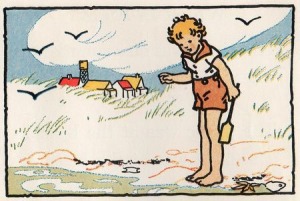
It seems there’s barely a day goes past without someone somewhere posting about the “rules” of writing. Now, I’m not entirely sure that I agree with this; I feel there are far too many so-called rules imposed upon one of the most creative pursuits imaginable.
Creativity doesn’t follow rules – creativity bends, warps and downright breaks rules. Look at James Joyce, Flann O’Brien, Dalí, Picasso, Man Ray, John Lydon… you can add plenty of your own favourites to that list.
Or, as Thomas Edison so beautifully put it:
There are no rules here, we are trying to accomplish something
Of course, some rules should be followed, but only because they work. I prefer to consider these principles, not rules. A couple of examples which will be familiar to all writers:
- Active voice is more dynamic than passive and drives a more immersive story;
- Showing will deliver a more lasting impression than telling every time;
- Adverbs will slow down your plot and bog down your readers;
However, there are others which simply beg to be broken in the name of trying something new. One of these, for me, is the advice to “kill your darlings” – that is, no matter how much you love a particular phrase, situation or scene, if it doesn’t fit the story, you have to get rid of it.
Really? Says who?
Unless it’s a major glaring departure from the rest of the book, I reckon you can work it in. OK, so I have a hard time imagining blue-skinned beings from the planet Morgos landing on the deck of the Pequod with laser harpoons – although it would, admittedly improve the tale no end (you can read my thoughts on Moby Dick elsewhere in this blog.)
Otherwise, if you create something of which you are justifiably proud, should you really allow perceived wisdom to stifle that creative impulse and shut it away in a box labelled Conformity?
One of the key purposes of any art form is to bring innovation to light. By adhering too strictly to what should actually be flexible guidelines, writers – particularly new writers – run the risk of inhibiting themselves and diminishing their work. When we start out on the writing journey, we find ourselves suddenly (Elmore Leonard says never to use “suddenly”, but sorry Elmore, been and gone and done it) in the midst of a wilderness with no signposts. So we turn to age-old wisdom and advice. This has to be framed somehow, so is given the label “Rules of Writing.” Before you know it, off we go down the path previously trodden by everyone else and end up creating something which… well… has been done before.
I have one particular phrase in my novel which I love. I’m very proud of it and I believe it encapsulates a feeling we’ve all had at one time or another in our lives. I have never seen it expressed in the way I’ve put it (apologies if that sounds arrogant by the way.)
But…
It didn’t fit within any of the versions of the scene I had written. I knew it was the right place, the right time and the right phrase. But it stuck out like a sore thumb nonetheless. “Kill your darlings,” my inner editor yelled over and over again, “get rid of it!”
So I did. And I missed it. And the scene missed it, And the book missed it.
That’s the point at which I tore up the rule book and decided that rules are indeed there to be broken. It would have been far easier just to lose the phrase and move on. Instead, I stuck to my guns, re-worked a whole chunk of the scene and lowered the prominence of that phrase, so it blended seamlessly.
And do you know what? It works. The scene is stronger, more natural and imbued with greater significance.
So before you succumb to the safer option of following the rules regardless, I say try throwing them out of the window, but make sure they land within easy reach just in case you need them again in future.
Am I wrong? Have you fallen foul of rule-breaking in your own work? Or do you find a little occasional bending a liberating experience?









